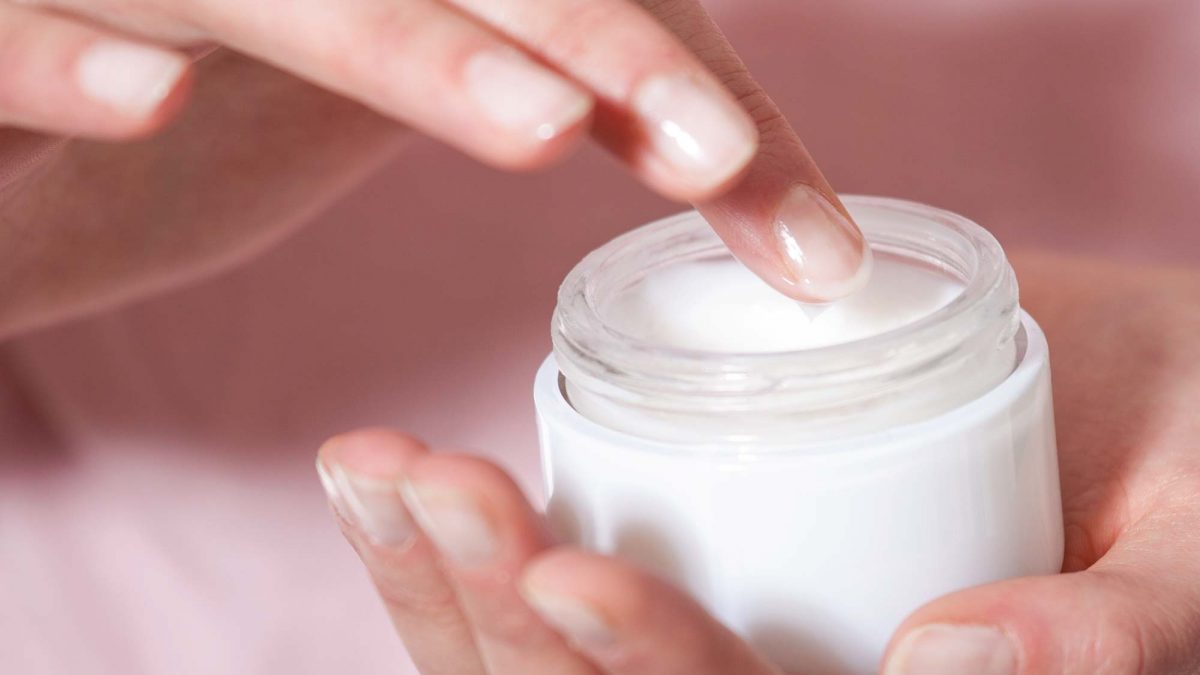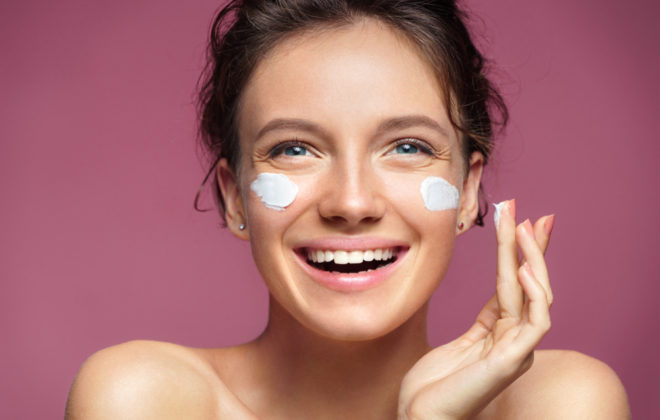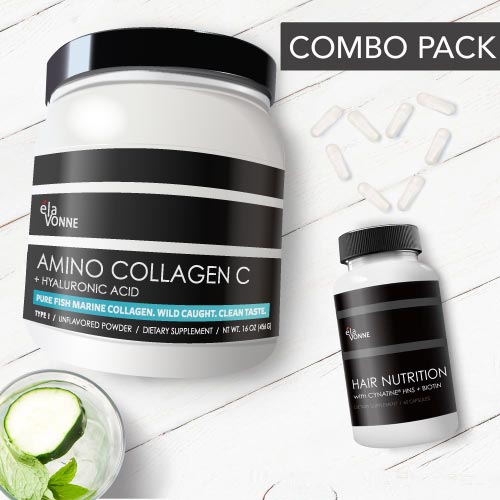Collagen Creams in Theory—The Real Results
Collagen creams: Collagen creams were developed with the theory that the best way to replace the collagen that is lost on your skin is to put it back in with creams. While the availability of collagen and elastin creams are vast in the beauty market, we find with further digging, that it is a mistake to think you can put cream on your face or body and see an “anti aging” effect (or less visible wrinkles). Why doesn’t the theory behind collagen cream work in reality? Why do so many manufacturers make creams that claim to replace collagen topically on the skin?
A Closer Look at Collagen Creams and Skin Health
Collagen creams capture an enormous amount of sales dollars in the beauty market. This is because it is well established that collagen is responsible for skin strength and elasticity. The degradation of skin collagen leads to wrinkles that accompany aging and the presumption is that cream can replace it in the skin.
The trouble is that our natural production of this valuable nutrient begins to decrease at about age 25 or so, by mid-40’s total body collagen levels can be greatly affected. This leads to wrinkles and fine lines along with other problems associated with aging and cannot be improved with creams alone. To fight the appearance of aging, you need to get total body collagen levels up. Can a collagen cream do this? Let’s look at the evolution of these creams.
First generation collagen creams
Simple creams containing “replacement” collagen
The theory behind collagen creams went like this: “Collagen is critical so we should just create creams with collagen in them.” This was where the mistake began. Why? The reason is fundamental:
Collagen molecules are too large to be absorbed through the skin in a cream. Creams DON’T WORK.
So the creams may have been formulated with ingredients that made the skin feel good, but the function of delivering collagen to the cells through the skin was wishful thinking at best. Collagen creams do nothing to increase collagen in the skin. This lead to the current offerings in collagen creams.
Second generation collagen creams
Creams that promote the body synthesis of collagen
With greater understanding and awareness of collagen creams, formulators removed the collagen from skin creams and looked at other substances that were precursors to collagen synthesis, which could also be somewhat absorbed through the skin.
Most of these creams are vitamin based (A, E, and especially vitamin C). Some have other proteins and amino acids, which still cannot be absorbed through the skin to any great degree. All in all, they are a better strategy than the first generation creams, but still missing the mark. Why? Because providing precursors in cream, though good, is still not as significant as providing the actual substance in the body, if it can be done. Also, the amount of precursors delivered in these cream formulas is lacking.
Another approach came recently with peptide creams. These peptide creams claim to offer the benefits of collagen topically to the skin by providing smaller forms of the collagen protein molecule. These creams have superior absorption qualities, but they can only bring minimal effect.
Creams that claims to stimulate collagen synthesis in the skin is only as good as your body is able to produce actual collagen. Collagen synthesis drops radically after age 40…
There is a better way…
So where do we go beyond cream? Simple… away from the skin-delivered vehicles (creams) and towards COLLAGEN SUPPLEMENTS. Maybe you have heard of the “beauty within” movement? This is an acknowledgement that the diet has a greater expression of outward beauty over simple topical creams.
In the case of delivering difficult substances like collagen, when you understand the physiology, we don’t know why anyone would want to use creams as a way to build collagen levels IN the body.
Organic Creams and Moisturizers
Chemicals and toxins in non-organic creams can actually degrade the collagen in your skin over time. The best way to keep skin healthy and youthful is to add no harmful chemicals to the skin by use of organic moisturizers and lotions.
Collagen Supplements Preferred Over Creams
Since collagen creams are not absorbed through the skin, people have turned to supplements. But even with oral supplements, the traditional sources of collagen (bovine and porcine) was problematic because they also were not considered to be all that well absorbed (though better than creams).
Now, there is a true functional way to deliver collagen, and that is with the emergence of COLLAGEN PEPTIDES.
Best Absorption with Fish Collagen Peptide
With the emergence of collagen peptides (especially fish collagen peptide), came peptide creams and peptide supplements. Now, there is a viable option to build collagen stores and get the ever so desired anti-aging effects. Studies range in demonstration from showing increased absorption after ingestion 1,2 to other positive, efficacious markers of absorption such as the synthesis of new collagen fibers 2 and positive effects on the skin as would be expected by an increase in collagen. 3,4,5,6
The beneficial characteristics of the fish collagen peptide form of collagen are that it can be EASILY DIGESTED AND ABSORBED in our body, has little or no smell, easily dissolves in water, and has an overall low allergy potential. A BIG IMPROVEMENT OVER CREAMS—even collagen peptide creams. The supplement form consists of small peptide molecules in the range of 3,000 and 5,000 daltons. Fish peptide absorption in the small intestine is superior to other collagen products due to its smaller molecule size, which leads to a more efficient collagen synthesis.
Supplements derived from fish are more available to the body than other sources of collagen (such as bovine or porcine). The best supplements, the supplements that actually affect the levels of skin collagen with “anti aging” results, are collagen supplements made from fish collagen peptide.
Because of these advantages in absorption, fish collagen peptide (such as found in Amino Collagen C with Hyaluronic Acid) is becoming the collagen of choice for skin care supplements to improve skin smoothness, elasticity, moisture, and to also slow down the formation of wrinkles and fine lines. So look for collagen peptide formulas, especially fish collagen peptide, and put away the collagen creams.
References
1. Iwal K., Hasegawa T., Taguchi Y., et al., (2006) Identification of food-derived collagen peptides in human blood after oral ingestion of gelatin hydrolysates. J Agric Food Chem 53: 6531-6535
2. Postlethwaite AE., Seyer JM., Kang AH., (1978) Chemotactic attraction of human fibroblasts to type I, II, and III collagens and collagen derived peptides. Proc Acad Sci USA 75: 871-875
3. Hitoshi Matsumoto, et al., (2006) Clinical effects of fish type I collagen hydrolysate on skin properties. ITE Letters on batteries, new technologies and medicine, 7 (4)
4. Sumida E., (2004) The effects of oral ingestion of collagen peptide on skin hydration and biochemical data of blood. Journal of Nutritional Food 7 (3): 45-52
5. Morganti P., Randazzo SD., Bruno C., (1988) Oral treatment of skin dryness. Cosmet Toilet 103: 77-80
6. Matsuda, et al., (2006) Effects of ingestion of collagen peptide on collagen fibrils and glycosaminoglycans in the dermis. J Nutri Sci Vitaminol 52: 211-215







